I read all the relevant duplicated questions/answers and I found this to be the most relevant answer:
INSERT IGNORE INTO temp(MAILING_ID,REPORT_ID)
SELECT DISTINCT MAILING_ID,REPORT_IDFROM table_1
;
The problem is that I want to remove duplicates by col1 and col2, but also want to include to the insert all the other fields of table_1.
I tried to add all the relevant columns this way:
INSERT IGNORE INTO temp(M_ID,MAILING_ID,REPORT_ID,
MAILING_NAME,VISIBILITY,EXPORTED) SELECT DISTINCT
M_ID,MAILING_ID,REPORT_ID,MAILING_NAME,VISIBILITY,
EXPORTED FROM table_1
;
M_ID(int,primary),MAILING_ID(int),REPORT_ID(int),
MAILING_NAME(varchar),VISIBILITY(varchar),EXPORTED(int)
But it inserted all rows into temp (including duplicates)



